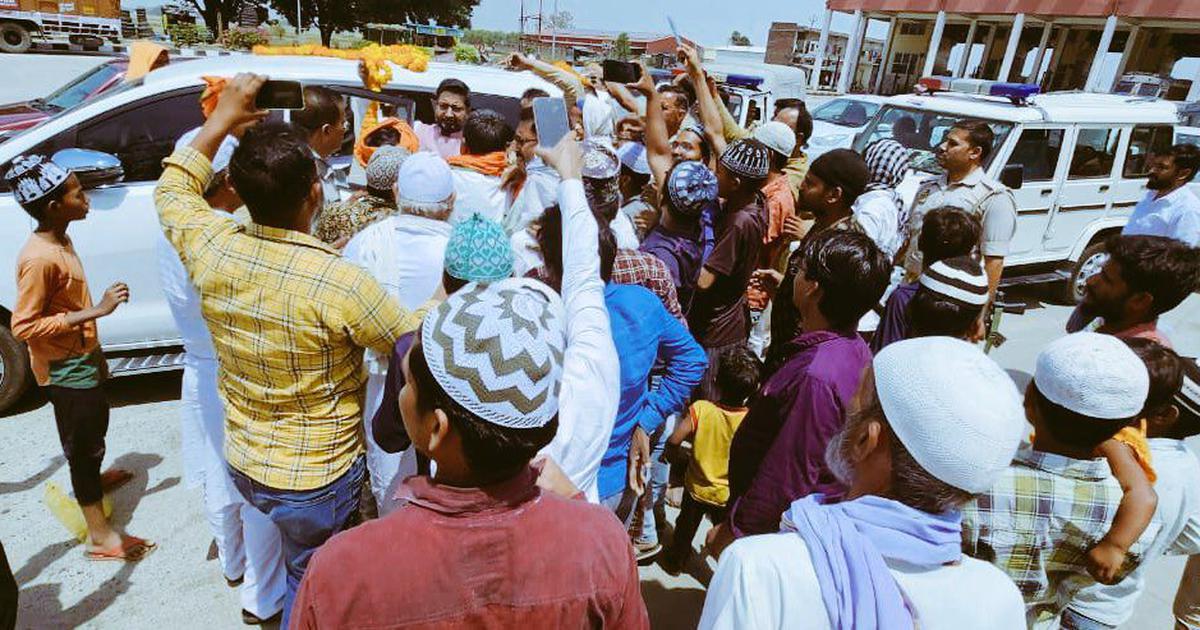Even as the Karnataka state election results signaled a clear sweep for the Opposition Indian National Congress (INC) states, local panchayat and zilla parishad elections saw a return of the Adityanath led Bharatiya Janata Party (BJP) in UP. Behind this success was a rarity, Kausar Abbas was elected chairperson of the Nagar Panchayat of Sirsi, a small town of around 30,000 people in Uttar Pradesh’s Sambhal district. While Abbas was one of a significant 15,000 people to have won the state’s urban body elections held earlier this month. Yet, his name is prominent among the news reports featuring results reports Scroll.
One reason for his prominence: he is one of the 61 Muslim candidates to have won on a Bharatiya Janata Party ticket, and one of the five to have secured the position of chairperson. These results have made the BJP, which has come to power promoting Hindu supremacism, proclaim that it now has the support of a large section of the state’s Muslims.
An expected victory
The only Muslim minister in the state, Danish Azad Ansari, told the news agency PTI: The result “proves that Muslims are gradually shifting towards the BJP and they have no illusion regarding” the Samajwadi Party, which has long enjoyed significant support from the community.
While these lofty Azad’s claims may be exaggerated, it appears that these recent urban elections did witness an unmistakable attempt by the BJP at some kind of outreach to Uttar Pradesh’s Muslims, particularly those belonging to the community’s lowered castes, known as Pasmandas.
The party, which has no elected Muslim lawmakers in the Uttar Pradesh Assembly as well as the Parliament, gave tickets to 395 Muslim candidates. A huge majority of these, almost 90% of them, according to the party’s state leaders, were Pasmanda Muslims.
Less than 400 candidates for nearly 15,000 posts is nowhere near proportionate representation to the community. After all, Muslims account for around 20% of Uttar Pradesh’s population. However, it is shift from the last edition of the elections held in 2017. At the time, the BJP gave tickets to around 100 Muslim candidates, most of them women.
Is this a new turn?
Are Uttar Pradesh’s Muslims now starting to consider BJP as an option ahead of the 2024 Lok Sabha election?
According to Wali Mohammad, another successful BJP candidate who secured the position of chairperson in the Gopamau Nagar Panchayat in Hardoi. “In the urban areas of our district, 80% of the houses under the Pradhan Mantri Awas Yojna have gone to Muslims,” he claimed, referring to the flagship housing scheme of the Centre. “So if we are getting benefits, why should we not side with them?”
Samajwadi Party leaders brushed this off. “In predominantly Muslim areas, obviously Muslim candidates will win,” said Udaiveer Singh, the party’s spokesperson and a former representative in the state’s Upper house told Scroll. “And as it so happens, they [the BJP] gave a few tickets to some Muslims. There is little more to the results than that.”
“Ultimately, that is how we survive given no one is really going to stick out their necks for us,” said the politician, requesting anonymity. “After all, who heads all the big parties? Hindus.”
Community activist Afag Khan, who used to be with the Jan Morcha political party till recently, echoed the Bahujan Samaj Party leader. “Given that Muslims backed the SP in large numbers and yet they could not win in 2021 [assembly elections] means people are wary about putting all their eggs in one basket,” said Khan.
Earlier the Muslim vote would be split. Even now, in several of the 17 mayoral contests in the urban polls, a split in the Muslim votes among candidates backed by the Samajwadi Party, the Bahujan Samaj Party, and in some cases the Congress, Aam Aadmi Party, and the All India Majlis-e-Ittehadul Muslimeen, This helped the BJP, which did not platform even one Muslim candidate for the coveted mayoral positions, sail through in all 17 municipalities.
Muslims and Hindutva
However, reading the results of the urban polls as some sort of change or shift among Muslims may be premature as these are local not state elections. At the state level, many still assess that Muslims will remain wary of the BJP. “Unless something dramatic happens and a completely new pole emerges, Uttar Pradesh’s Muslims will continue to largely stick by the Samajwadi Party,” said a Lucknow-based Muslim leader of the Congress, who asked not to be identified. Moreover, the prospect of the BJP fielding Muslim candidates in large numbers in assembly and parliamentary elections in Uttar Pradesh seems unlikely, said observers. Beg pointed out that the party had not platformed even a single Muslim in the 17 mayoral contests – the highest tier of governance in the urban civic set-up. “2024 is going to be about more and more Hindutva and in that kind of aggressive space, it is difficult to see Muslims being given a space by the BJP,” said Beg.
Related:
UP Civic Polls: Clashes Reported in Amroha, Lucknow; Several Muslim Voters’ Names ‘Missing’

